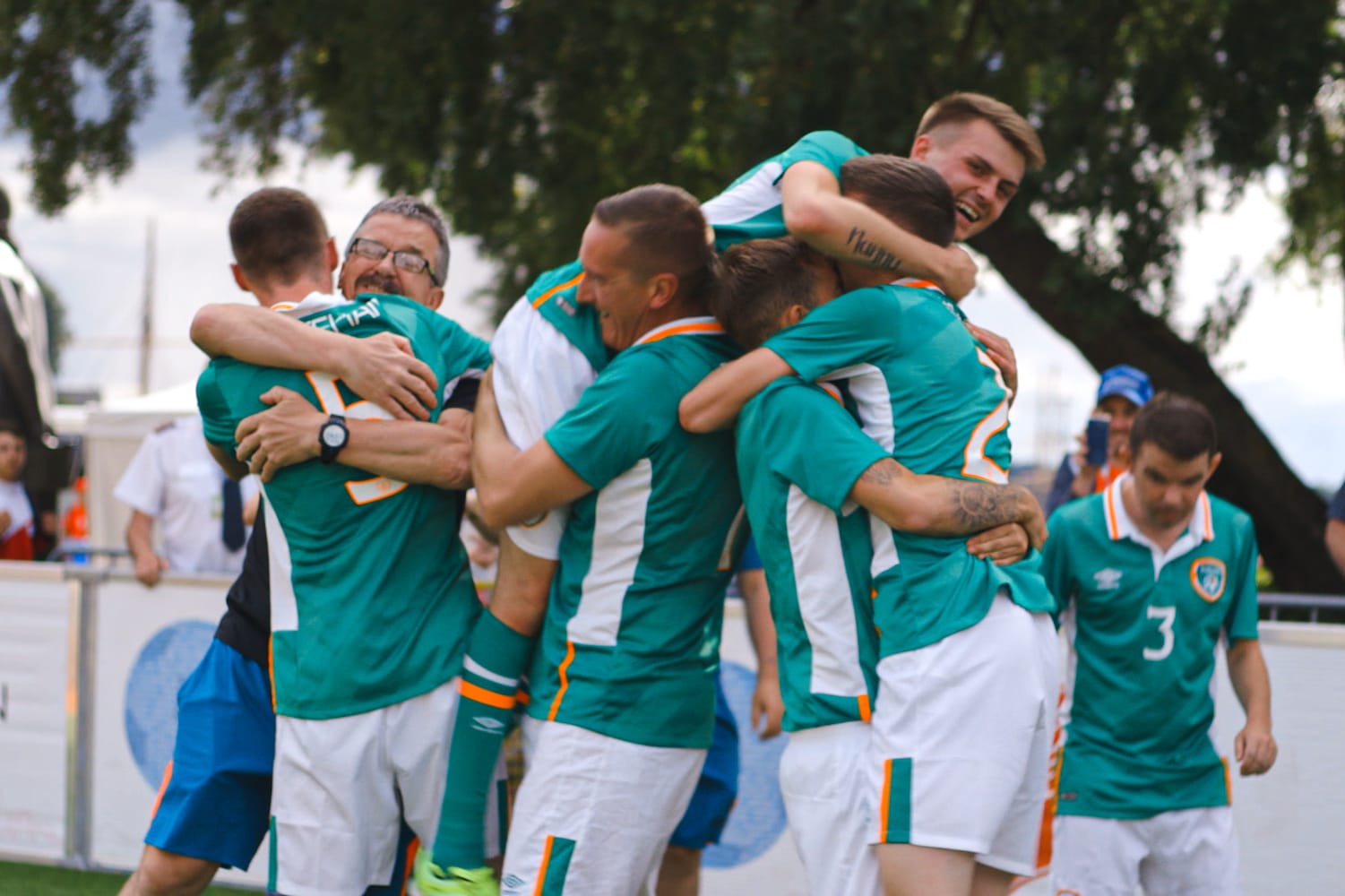What’s the best way to tell area residents about plans for a new asylum shelter nearby?
The government should tell communities directly about plans for new asylum shelters, some activists and politicians say.
Director Daniel F. Holmes follows Irish footballers at the Homeless World Cup, showing how sport can give a sense of purpose to those who’ve suffered hardship and misfortune.

Founded in 2002, the Homeless World Cup takes place each year and sees teams from all over the world compete in four-a-side football matches. In Ireland, the Homeless Street Leagues are organised and championed by Sean Kavanagh, the former editor of Ireland’s edition of the Big Issue magazine.
In Street Leagues, director Daniel F. Holmes follows the Irish team as they compete in the 2017 tournament in Oslo and manages to show how sport can give a sense of purpose to those who have suffered hardship and misfortune in their lives.
Generally speaking, sports films work best as metaphor, with the in-ring, on-pitch, or gymnasium action reflecting the ups and downs in a film’s narrative. Stories involving sport resonate so readily with devotees of games and the uninitiated alike because we can see the arc of a character paralleled clearly and dynamically in goals, knockouts, or perfectly executed floor routines.
The appealing aspects of fictional sporting stories work with the actuality of Street Leagues too. The film’s on-screen football drama underscores the personal journeys of the players we meet along the way. The difference here is that unlike Rocky Balboa or Santiago Muñez from Goal! these players are flesh and blood and not celluloid tricks of the light. Their stories are written in sweat and tears and not as a screenplay.
The film emphasises the value of sportsmanship in these Homeless Street Leagues. The players tell us enthusiastically about how they have a newfound feeling of worth and responsibility to themselves and their teammates, and through to-camera interviews, they contrast their current lives, made richer through their involvement with football, to their recent pasts living out-of-society.
Tara McNeill, the women’s captain, is older than many of her teammates. She tells the filmmakers about spending the majority of her adult life on the streets as an addict. Playing football gave Tara hope, it gave her a reason to be sober and not count herself out. Football was a path to reconnecting with her family and overcoming the demons of her past.
Tara talks about how she used to feel that her best years were behind her but as a player, and later coach, for the women’s Street Leagues team she feels that she has a lot more to give.
All of these players, male and female, of Team Ireland have overcome major hurdles in their lives, like drugs, alcohol abuse, petty criminality, and lives of marginalisation.
Organiser Sean Kavanagh talks about playing football as a kid. While he was playing, his problems would disappear. In organising tournaments for homeless people, he hoped to relieve them of their troubles, for a while at least.

Throughout Street Leagues the interviewees speak to the success of Kavanagh’s idea. Through football, these men and women have found a support structure and kindred spirits. One of the female players, Nikita Farrelly, remarks that only an addict like herself could understand her, and in turn, gel so well with her on the field. There’s something to this too, in the match footage that Holmes shoots at the Homeless World Cup and elsewhere, it’s impressive to see how both the men and women play so well together.
An element that was surprising to me was the intensity of the tournament itself. The group stages sometimes had two or three matches played back-to-back. The rapid, goal-by-goal presentation of these games is incredibly tense, and I imagine, only manages to give us an approximation of what it was like to play in the tournament.
A downside of the highlights reel handling of the tournament is that we don’t get to see too much playmaking from either team, but the results speak for themselves as Ireland’s men and women handily beat out many opponents, even some that we’re told are formidable.
Even still, Holmes’ approach to the action has the slick appeal of a Best Of tournament video package. Most importantly it doesn’t shy away from showing the teams at lower moments. In football, as in life, victory must go hand in hand with defeat.
Incidentally, in the Homeless World Cup, smaller countries can make big waves. Association Football minnows Scotland and Afghanistan have won tournaments in the past. In Street Leagues, both Irish teams do well, and even bring home silverware.
The closing section of Holmes’ film catches up with the players a year after the tournament. All of those interviewed continue to benefit from their shared experience with the Dublin Street Leagues. Many of them work in or around the sport.
We see footage of the teams being honoured at the FAI awards where David Bissett, the captain of the men’s team wins an award. In a touching sequence, we see Bissett sitting next to his daughter who speaks with pride about her father’s accomplishment.
A title card at the beginning of Street Leagues presents in black and white the magnitude of homelessness in Ireland.
At the time of filming, there were more than 10,000 homeless people in Ireland.
Get our latest headlines in one of them, and recommendations for things to do in Dublin in the other.